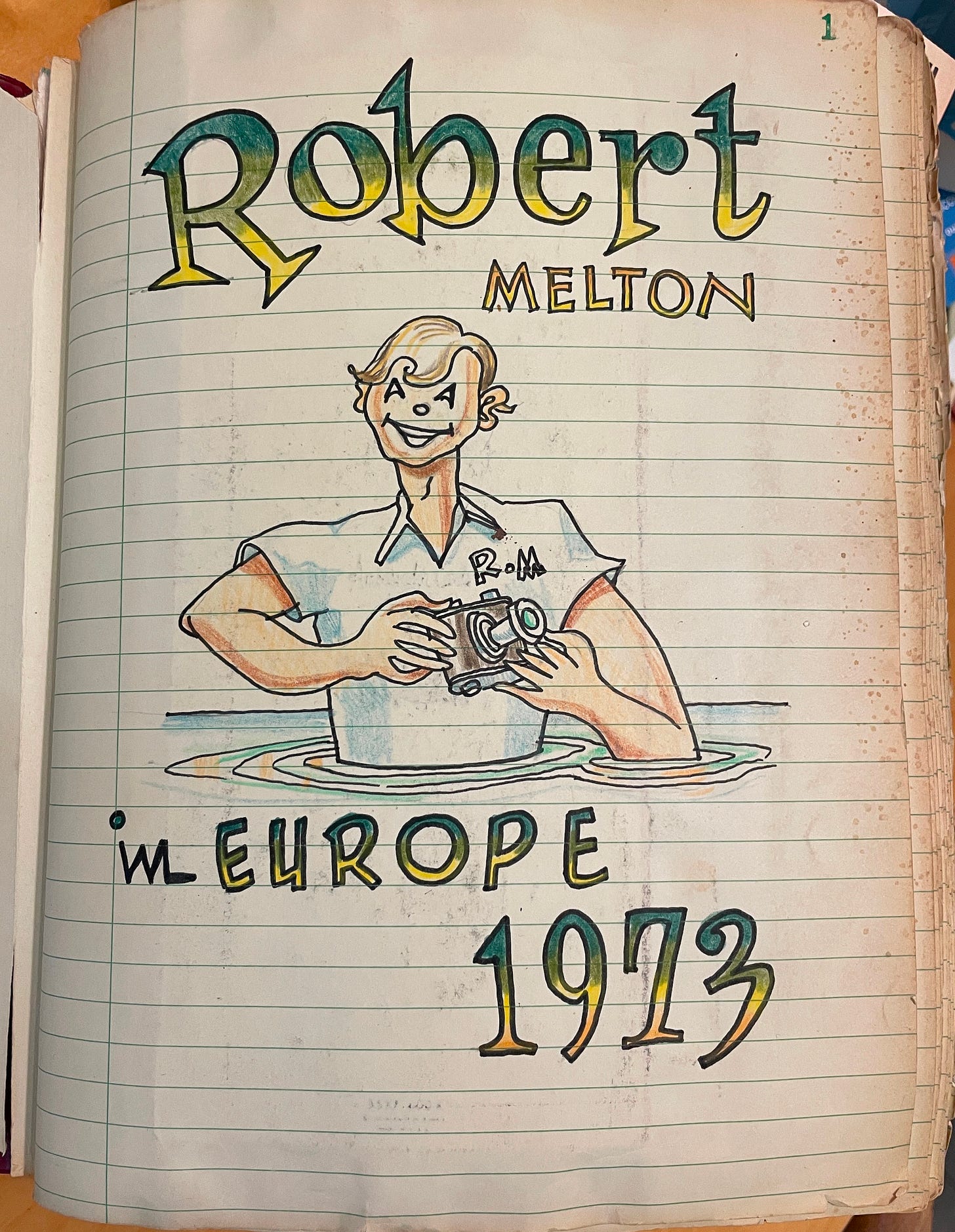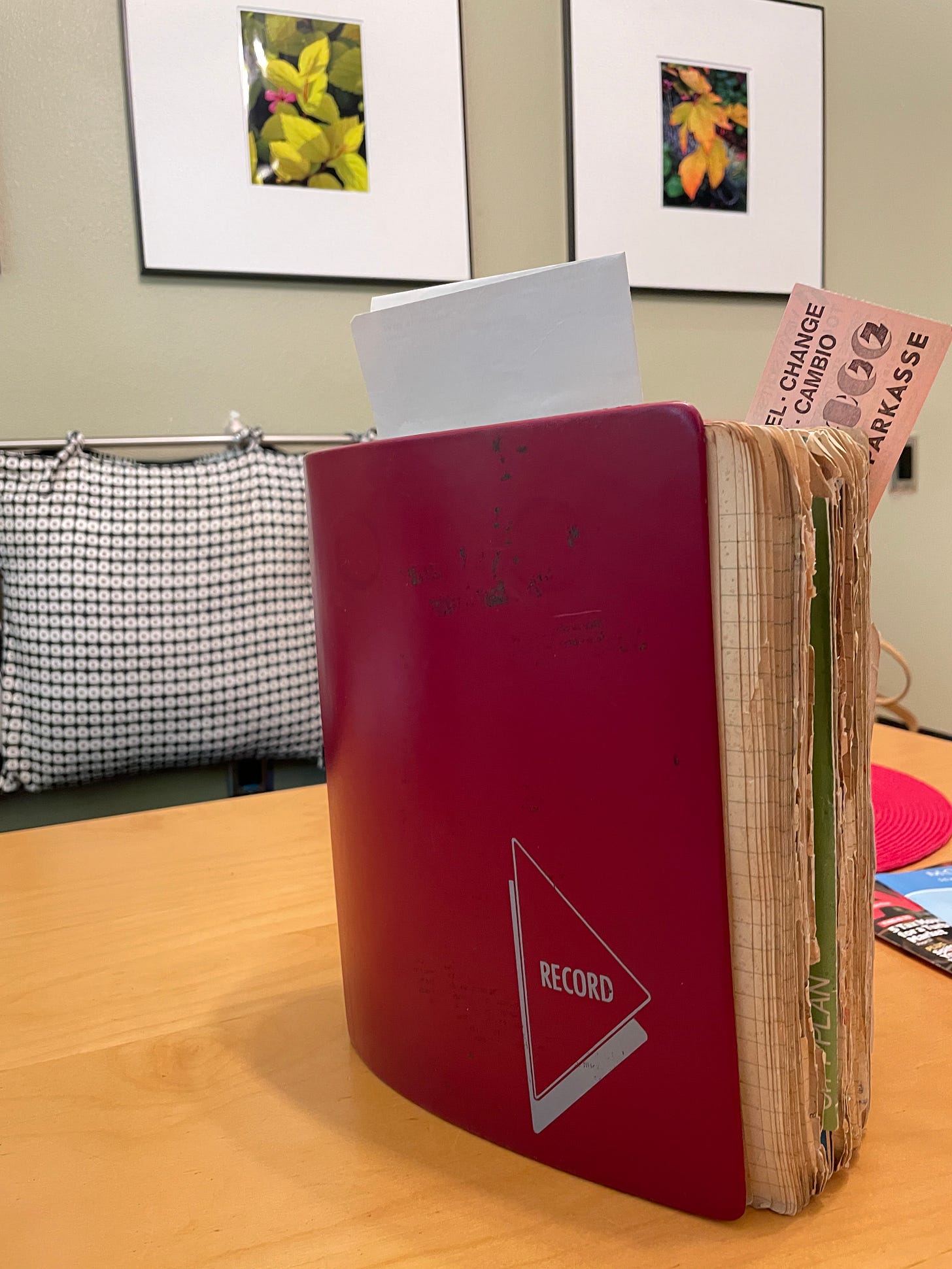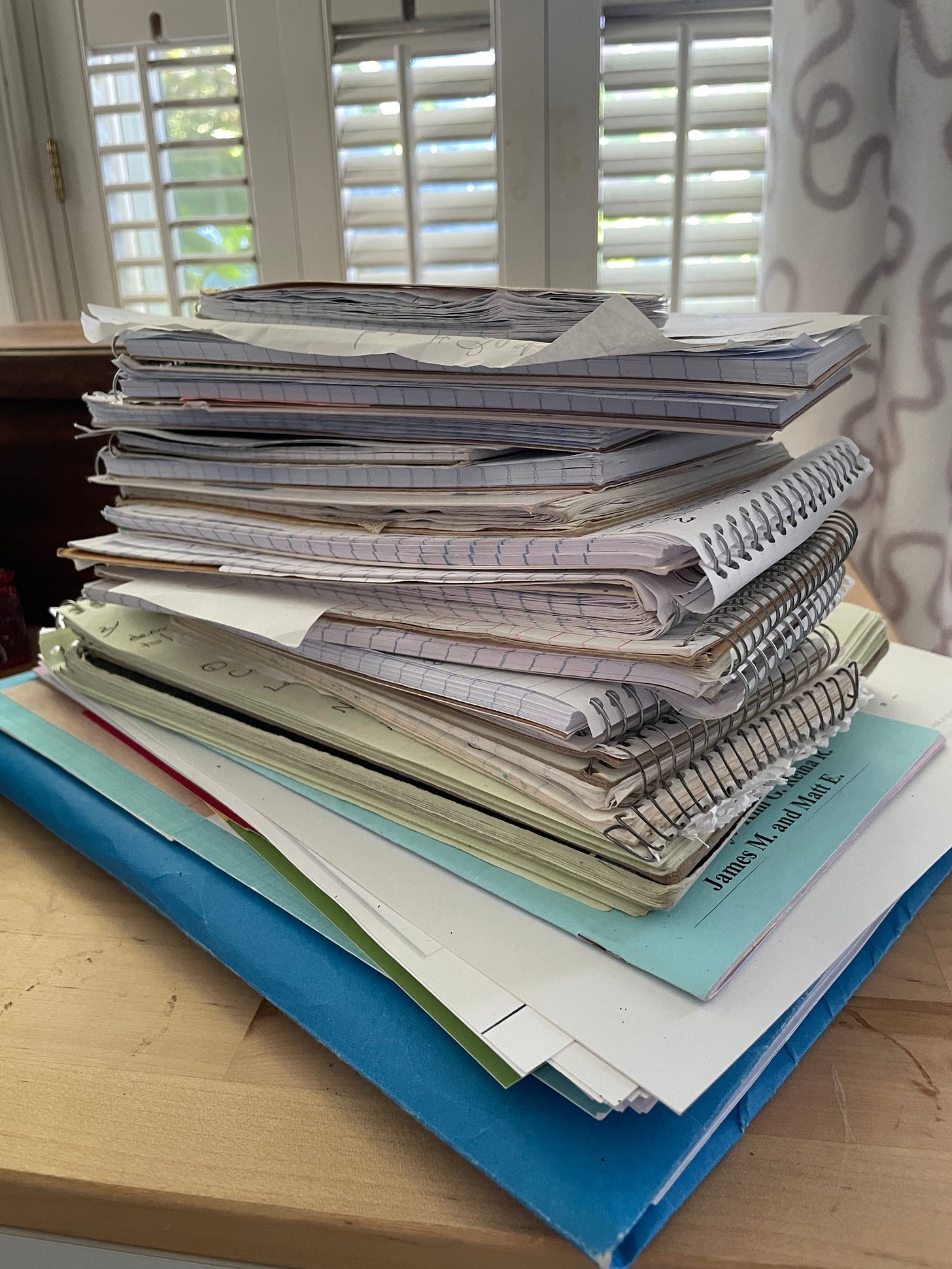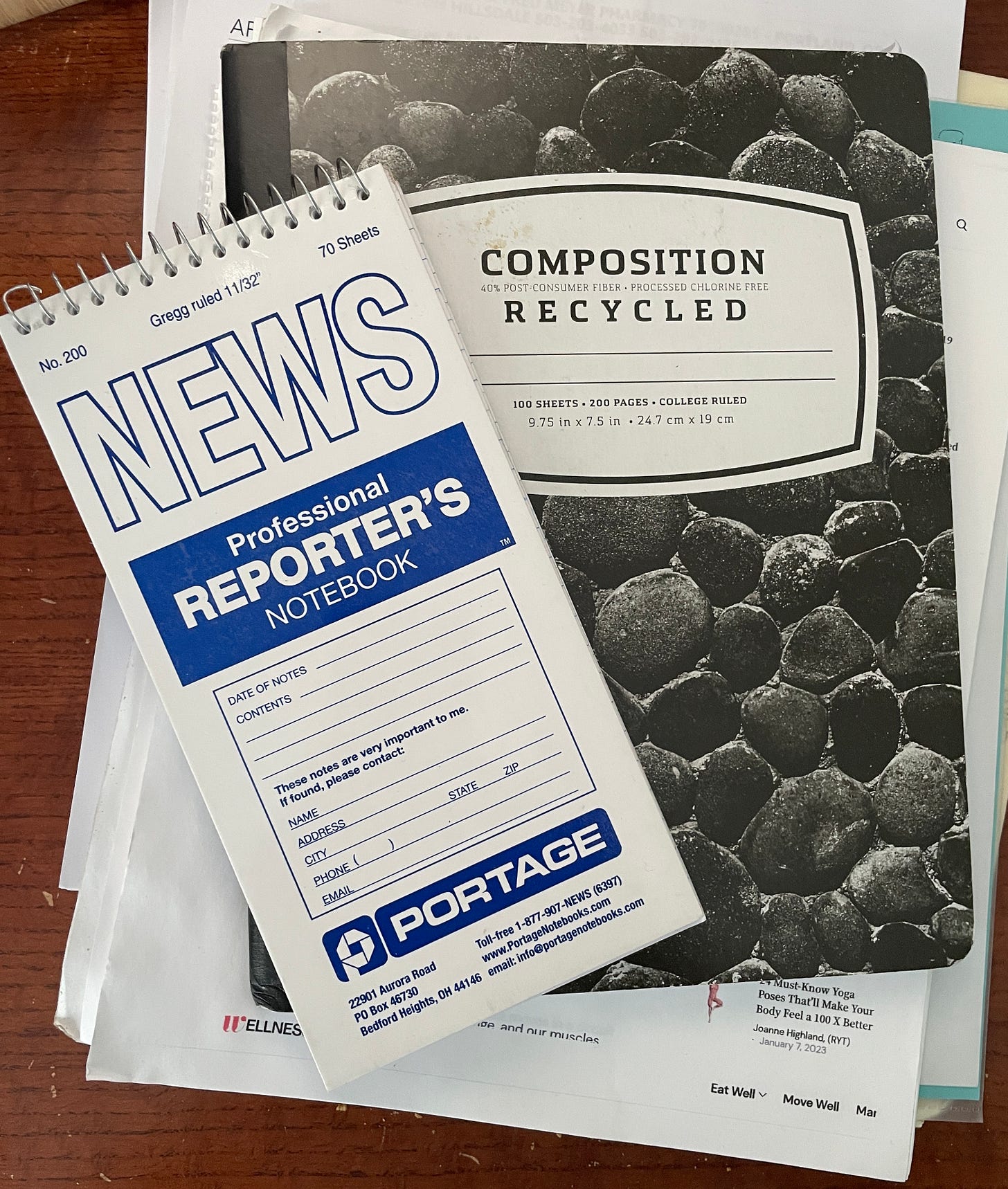A writer's manifesto: Getting rid of barriers, taking notes, ignoring rules, a playful attitude, test drafts--and the call to write
Looking for words, ideas, ancecdotes, set-ups, plots, character descriptions, mental images, settings, paradoxes, and humor that scream “Look at me!” and can be upscaled into a form that works.

I was reminded of a trip to Europe and North Africa in 1977 reading a Substack about Flemish painters today. It sparked some memories of European art galleries when I was a sophomore in college, which started me thinking.
Curious, I grabbed my 150-page Record Book off the shelf and began reading it, looking for information about the great European art galleries and museums I visited, as well as Spain and Morocco. I was encouraged by my older cousin Cam to paste tickets, brochures, coins, postcards, and other things in it, so it is quite bulky.
Reading my 19-year-old-self journal, I was struck by how much detail I wrote about the artwork, and the effect it had on me viewing the real thing—even a piece about throwing some elbow and kicking some shins which Italian women did to me, until I kicked and threw elbows back! Also, how much time we spent on trains, and the delays and missed connections!
It’s two hours later, and somehow I missed the Flemish painters that time I was in Europe, and must have encountered them somewhere in my travels closer to home. What a fun journey—then and now!
An aunt and uncle traveled the world, and my aunt had dozens of these lined record books filled to the brim with words as well as receipts, brochures, postcards, toilet paper samples from each country she traveled to, coins, mementos, and anything else she wanted to remember about her experiences.

My aunt and uncle gave me the Record Book, which as I understand it was generally used for business purposes, with my artist-architect-uncle’s drawing of me. I filled up all 150 pages.
Looking at it today, I was reminded of what I learned back then about my writing process preferences.
I still have a few nice, blank journals scattered around the house, but I find them intimidating—as though somehow they expect more of me than I am currently jotting down: That they are only for those polished words and stories for the ages. That these stylishly bound books are arrogant and turn their noses up at my first drafts, notes, and lists that form the foundation of what I eventually write and speak. No, those notebooks are not for me. I don’t need their judgment, tsk-tsking, rolling their eyes at my spelling shorthand and mistakes I ignore that can be fixed later if it has potential.
Memories and observations are fleeting and should be written down, to be formed into prose or poetry down the road. Some ideas are fleeting, some have potential. I don’t expect a notebook to do the heavy lifting of writing. I expect it to lie there quietly until it is required, not terrify me with a blank page, but ready with its blue or green lines—and definitely not college-ruled! When you are reporter jotting down notes quickly, you are not paying attention to the lines, anyway. When you suddenly have that Aha! moment (fancy people call them epiphanies), it all comes rushing out and you just have to try to keep up with it as you write. You don’t need your notebook telling you “Stay within the lines! You didn’t spell that correctly! That’s only a half-finished idea!” to which I would have to stop and reply “Yeah, but I’ll remember the rest of it if it is needed, or I can add it as soon as I’m done with this!” Writing doesn’t work that way. The idea comes first. If the story is never going to see the light of day, spelling, grammar, narrative structure, and a hundred other things writers have to do correctly doesn’t matter. If you only aspire to be a reporter, your editor will fix all those issues. If you want to be an editor, you better know how to do those things.
So, fancy notebook, I don’t need your attitude! I just want something rugged I can carry in the field, along with my camera. I prefer top-bound spiral notebooks because I am left-handed, but a 50-cent composition notebook is good too. Or sheets of paper stuffed inside a folder with two pockets.
Here’s what the ones that get used and abused look like. Also love a good pocket folder. Not too fussy, not too arrogant, just hard-working tools that are not staring at me and intimidating me. I’m looking for words, ideas, anecdotes, set-ups, plots, character descriptions, mental images, settings, paradoxes, and humor that scream “Look at me!” and can be upscaled into a form that works.







